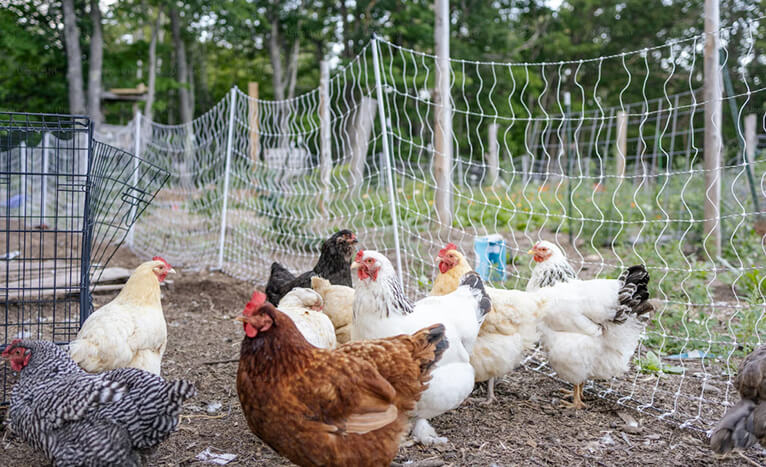We are doing something new on the homestead: incubating chicken eggs! These chicken eggs are special—they are from heritage breeds of chickens! Because spring is right around the corner, I definitely need some more chickens. Who doesn’t need more chickens? Chicken math is real thing.
What is chicken math?
Chicken math is where you start with a few chickens then over time you end up with tons of chickens because they are easy to care for animals, require little effort and time, and result in big rewards (eggs and meat!)
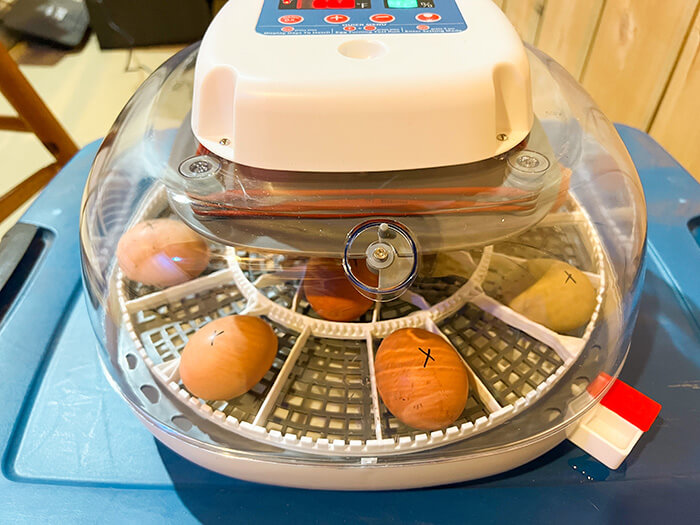
This year I decided to incubate my eggs to hatch chickens for the homestead. I purchased this Nurture Right incubator and I am incredibly happy with it! It has an automatic egg rotator, so I don’t have to manually rotate the eggs. It also has easy to see temperature and humidity indicators on the lid.
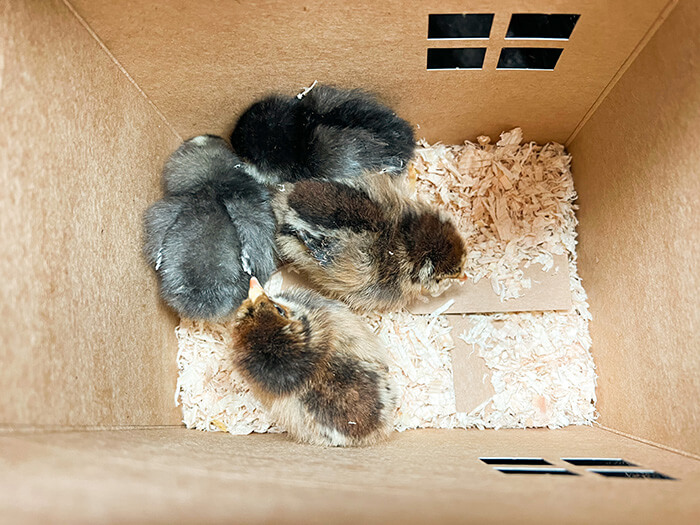
I was only planning to incubate eggs and avoid the farm store this season, but I made a mistake and went to the farm store when they had all of the chicks out. I purchased four Astralorps. Simply, I couldn’t help it when I saw the cute chicks! The bonus about this breed of chickens is that they are heritage chickens and lay green or blue eggs. The color of the eggs has no effect on the nutrient density of the eggs, but they sure will make cute social media pictures!
If you are interested in raising your own chickens, check out my Raising Backyard Chickens Bundle. It has all of the information you need to raise chickens, set up a coop, and get going on your own self-sufficient flock.
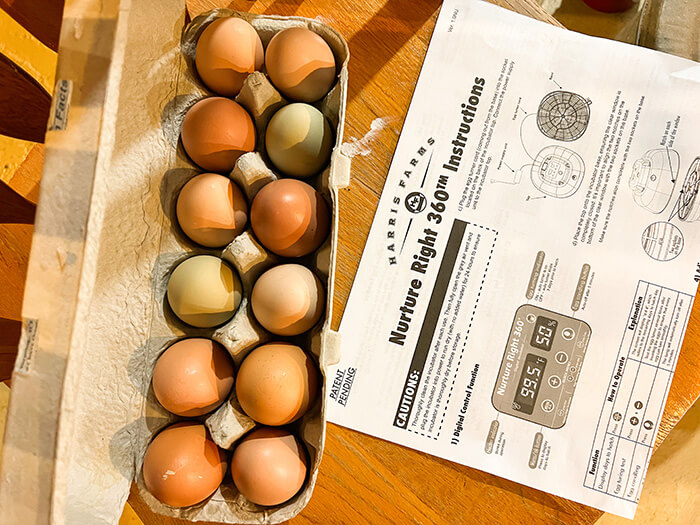
A local homestead sells eggs to incubate, so I wanted to take up the task this spring. This homestead is like-minded and doesn’t deal with their chickens in the same manner a large poultry operation has to. The chickens they raise are free-range birds and haven’t been pumped full of medications. This was important in considering the quality of eggs I wanted to have for incubating. I understand that with large numbers of birds, precautions have to be taken, but I also prefer to just support local! Put power back into your money.
What are heritage breeds of chickens?
Heritage chickens are bred from a line of chickens that existed before the mid 20th century. These chickens are not hybrids. They are pure bred chickens that are the same chickens people were raising back in the 1800s before people started to create industrialized farms where production had to be rampant and gargantuan.
What are benefits of heritage chickens?
Back in the day, chickens were dual purpose for eggs and meat. Nowadays, chickens have been bred to be either egg-layers or meat birds. Traditionally, our ancestors only had dual-purpose chickens as hybrids like the Cornish cross for meat weren’t yet created.
I wanted heritage breeds for my homestead for a few reasons:
Heritage breed chickens are more likely to go broody. When a hen goes broody it means that she wants to sit on her eggs, hatch them, and raise her little chickies. This creates a self-sufficient flock that can regenerate itself. Broodiness was bred out of chickens for industrialized poultry, so traditional heritage breeds are more likely to go broody and want to raise some chicks.
Heritage breeds of chickens are dual purpose. I already touched on this, but this adds variety to my flock. Currently, my flock is hybrid egg-layers only. If I want the option (or have no other option) for meat down the road, I want to be able to butcher and raise chickens for meat.
Longer egg production. Heritage chickens can lay for 5-7 years as compared to a hybrid chicken laying for 2-3. Hybrid flocks have to be rotated every couple of years to keep egg production going. Egg-layers have been bred to produce unnatural amounts of eggs and they get worn out more quickly. Let mother nature take her natural course!
Heritage breeds in your flock helps support conservation. A majority of poultry (90%) is industrialized, meaning big corporations are leading the way for the future of poultry. In order to preserve these ancient breeds and their characteristics, we need to keep these breeds in our flocks and keep their lines going. If the poultry industry had its way, we would end up with just hybrids as traditional heritage breeds are not moneymakers for mass production of eggs or meat.
Hardier chickens. Advantageous traits have been passed down through the genetic line to create hardier breeds of chickens. Either cold-hardy or heat-hardy, heritage breeds are more likely to withstand the elements as compared to hybrids. This is important to me because I live in a place that is brutally cold in the winters and can get scorching in the summers. Back when America was being settled, heritage breeds of chickens were what the settlers brought! I want the same breed of chickens that withstood the Jamestown winters on my homestead!
10 Heritage Breeds of chickens:
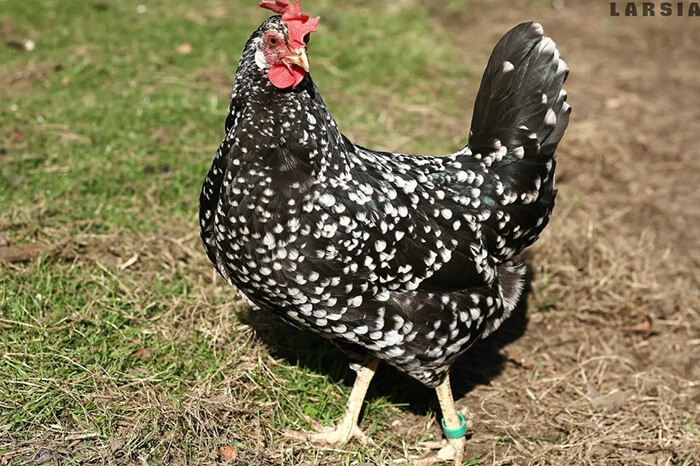
Ancona - If you're searching for an energetic, active, and playful chicken breed that is well-suited for winter, the Ancona breed is a great choice. In addition to their lively nature, they also produce a plentiful supply of white eggs in a good size.
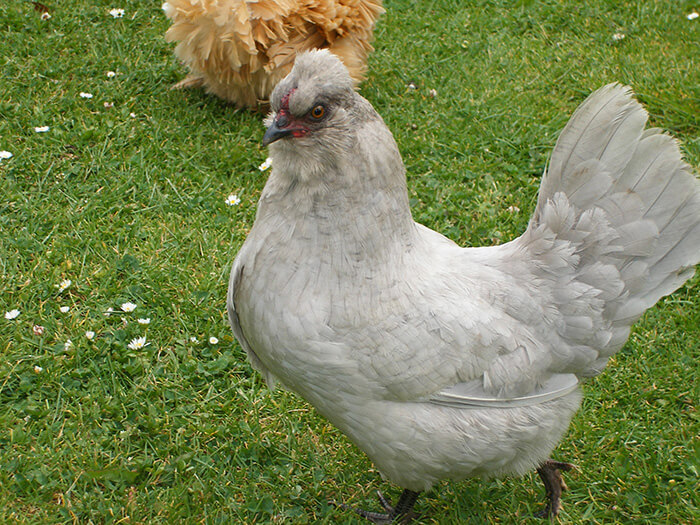
Araucana or Ameraucana - The araucana breed lays eggs in blue or green shades. There can be significant differences among araucana types, with some lacking long tails and others sporting peculiar tufts. The color patterns of their chicks range from speckled black to freckled light brown.
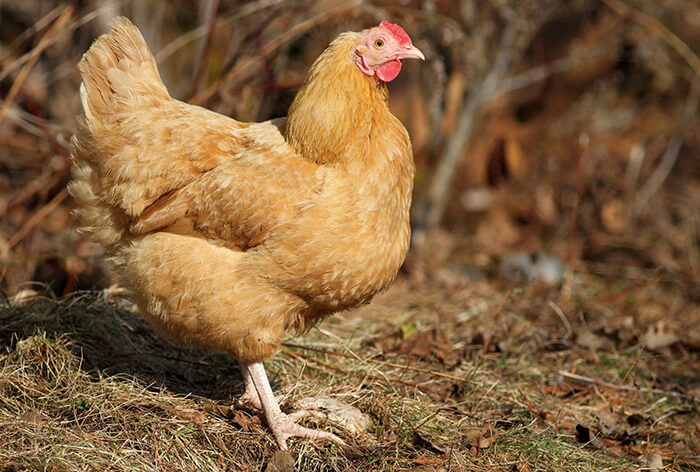
Buff Orpington - This chicken breed has always been popular due to its numerous desirable qualities, including its ability to lay a substantial number of eggs, excel in brooding and hatching chicks compared to other breeds, and produce tasty meat. Additionally, this breed lays eggs in a creamy color.
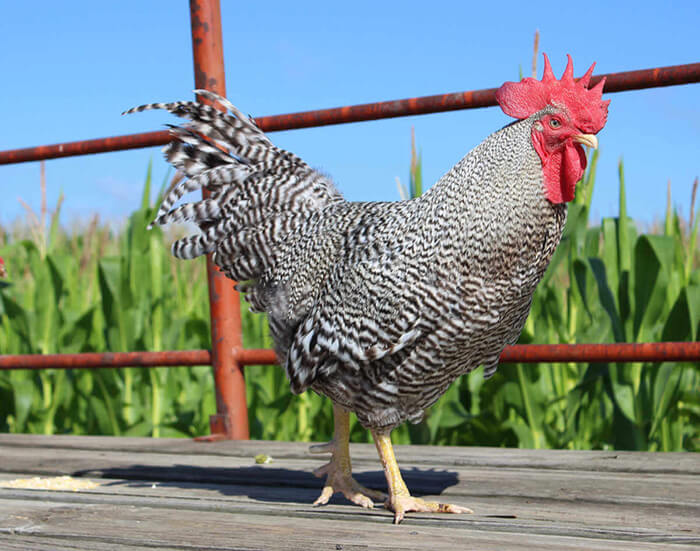
Barred Plymouth Rock - This breed of chicken is commonly referred to as "Rocks" or "Barred Rocks" and originated in the United States. They are cold-hardy and heavier than Rhode Island Reds. This dual-purpose breed is known for producing brown-colored eggs and is also great for roasting.
Blue pic
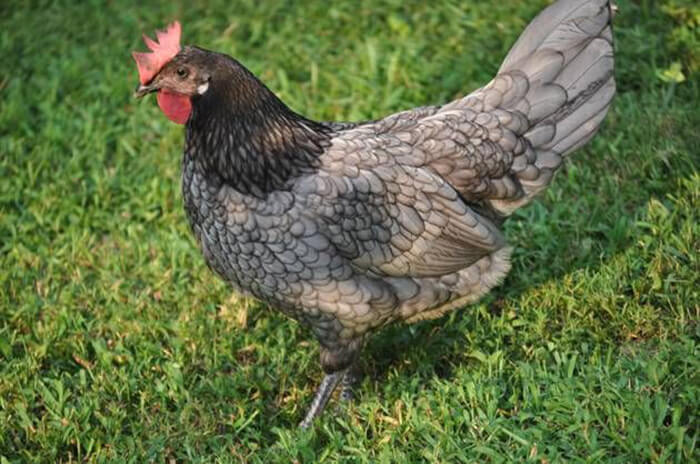
Blue Andalusian - This breed is named for its distinctive blue feathers. While the large eggs they lay may be white, the chicks can be white, blue, or black, and may display a range of beautiful color combinations
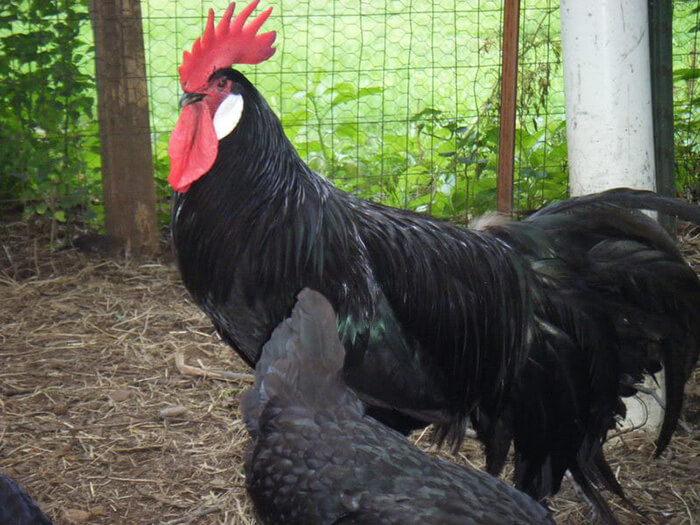
Black Minorca - If you're looking for a chicken breed that exudes a bit of attitude, then this breed is the gangster of the chicken world. They can be arrogant, moody, and often don't mix well with other chickens in the flock. However, they make up for their temperament by laying oversized eggs that are half-white in color.

Rhode Island Reds - There's no doubt that this breed is one of the most popular among various heritage chicken breeds. It is a dual-purpose breed that is known for laying brown-colored eggs and is famous for being a fine broiler. Meat and eggs for the win!
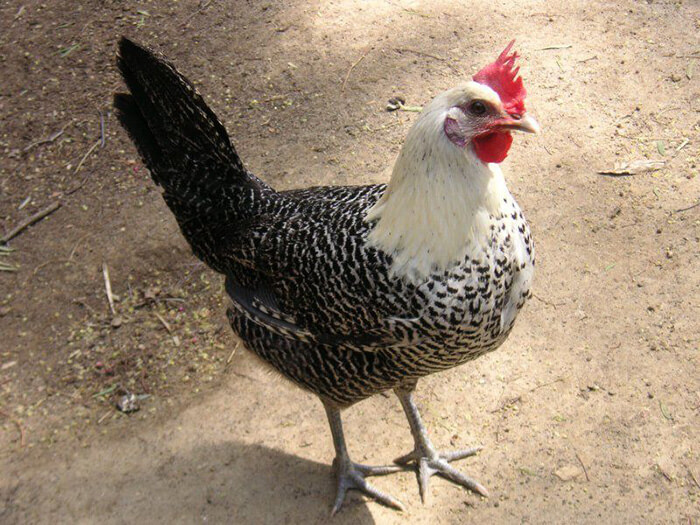
Silver Campine - This breed is highly prized for its ornamental value and remains popular among those who want to keep a small backyard farm primarily for decorative purposes. These lightweight, fully feathered, active, and energetic chickens are constant producers of white eggs, making them a valuable addition to any flock.
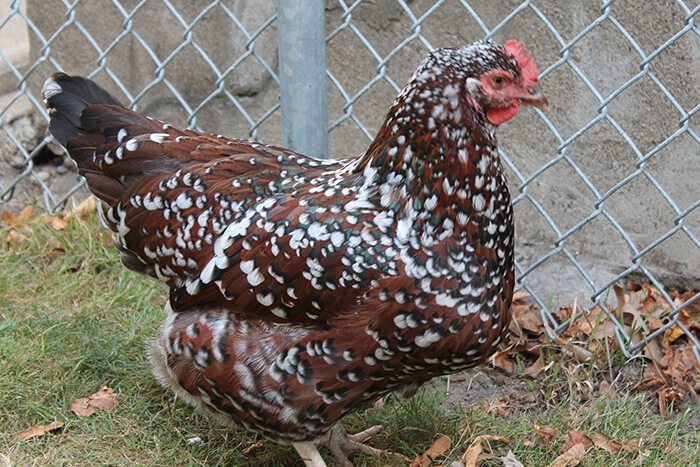
Speckled Sussex - This breed originated in England around a century ago. Its feathers have a combination of mahogany and black with white tips. Known for being a good laying breed, it produces light brown or tinted eggs.
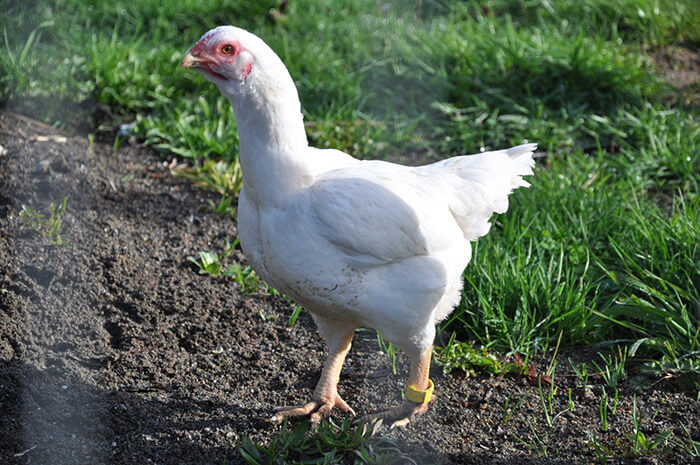
White laced red Cornish - This breed may test your patience as it takes a significant amount of time to reach full maturity. While egg production may not be a strong point of this breed, it is often used for its meat. If you're looking to enjoy a great chicken meal with friends or make money by selling meat, this is the perfect breed for raising chickens for meat.
I have a mix of these that I am incubating! Like I mentioned, I purchased Astralorps from the local feed store and am hoping to have all of my incubating eggs hatch and have them be hens—one can hope, haha!
Heritage breeds are perfect for a self-sufficient homestead. Because the hens are more likely to go broody, this can help your flock continue on for years to come. You won’t have to depend on farm stores to replenish your flock. The less dependence on outside systems, the better!

